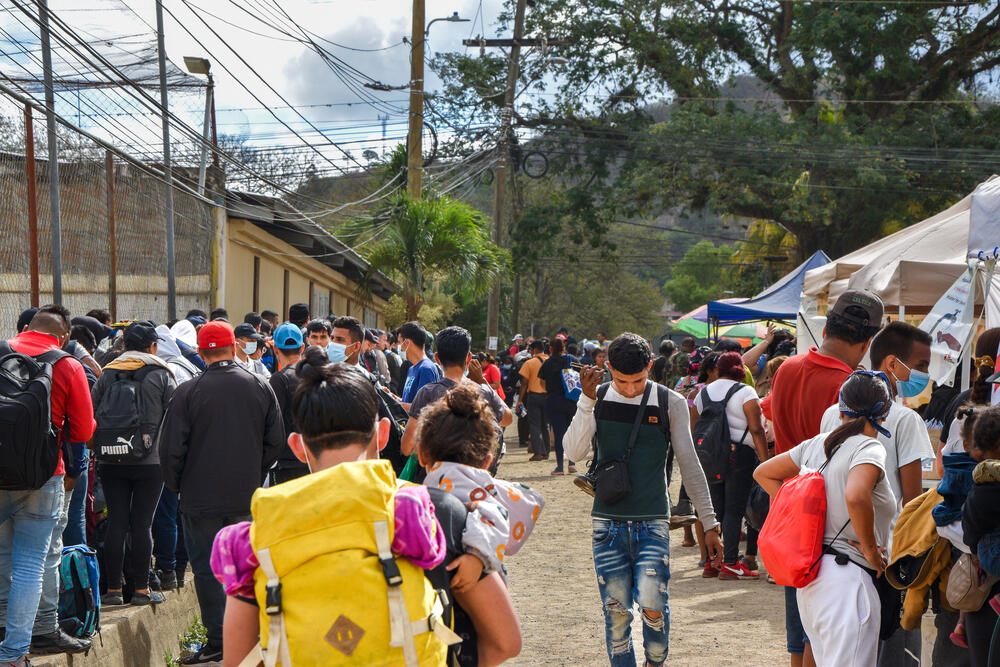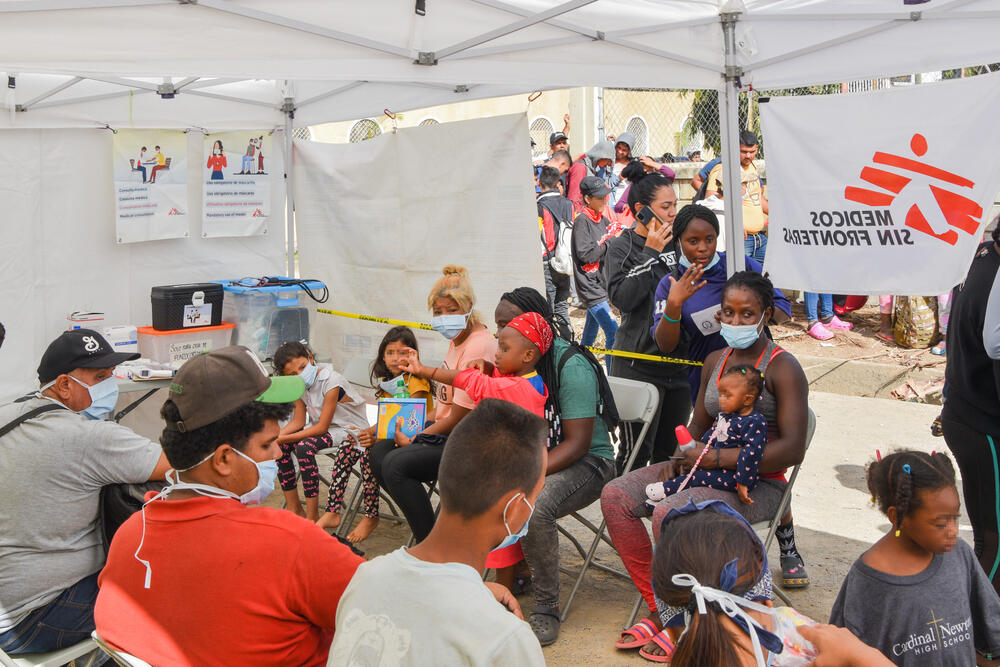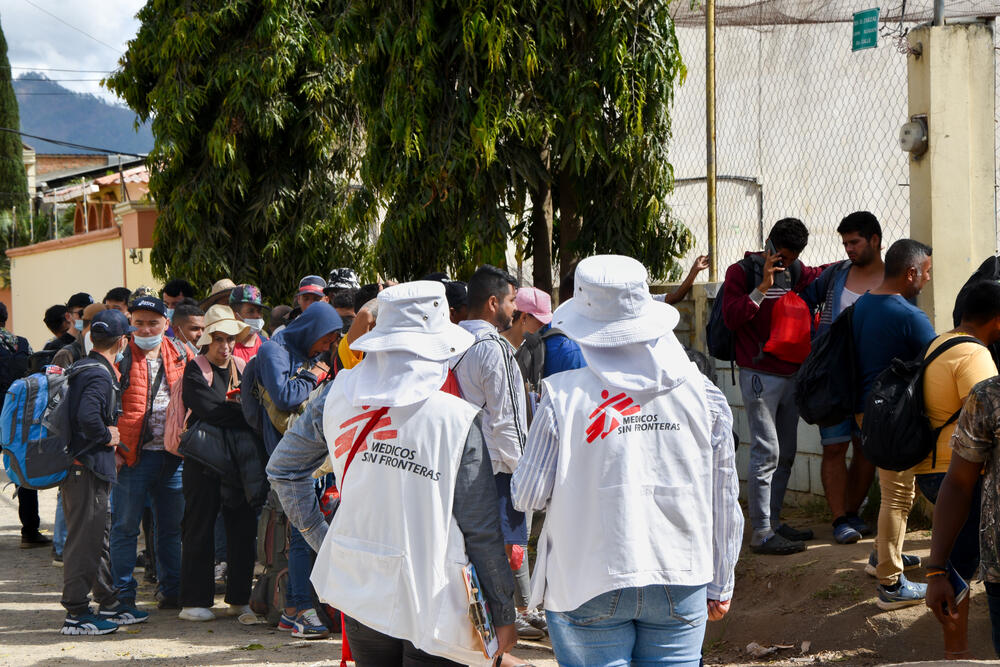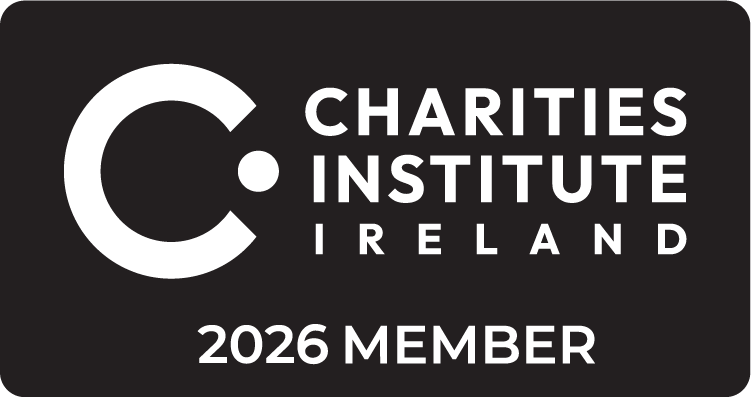Increasing number of migrants arriving in Honduras with multiple health needs
27 April 2023
The situation for migrants at the border between Nicaragua and Honduras has worsened in recent weeks. Since the beginning of March, a new wave of people has been crossing the borders of eastern Honduras. According to figures from Honduras National Migration Institute (INM), from January to March more than 30,000 people have entered the country irregularly between the municipalities of Trojes and Danli, both border points with Nicaragua. In view of this situation, Médecins Sans Frontières/Doctors Without Borders (MSF) mobile clinics continue to travel to these areas to provide medical and humanitarian assistance to people on the move.
Currently, the MSF team working next to the INM facilities in Danli offers medical and mental health care, social support and health promotion to people who must stop at this location to obtain permission to continue their journey to the north of the continent. As part of the services, the team at Trojes offers menstrual health support to women who are migrants, including handing out kits containing different menstruation products.
Many of the people who pass through this point talk about the risks they face when crossing the Darien jungle, the increasing difficulties on the route through Nicaragua, and the situations of violence in Honduras.
"I hurt my knee because I had to walk for more than four hours in Nicaragua. Migration officials sent me back to Costa Rica and we had to look for an alternate route. We had to pay someone to take us between the mountains and the jungle. This was worse than in the Darien jungle because it was early in the morning," says Andrith, a Venezuelan who went to a doctor's office to receive treatment for pain in his knees.
Ricardo, also from Venezuela, says before entering for a consultation with the MSF doctor: "I have a lot of stomach pain, diarrhea and fever in the last few days. In the Darien jungle we had no access to drinking water, we were forced to drink water from the river and this is not good. Since I was a child, I have suffered from many allergies and now on the road several of them have hit me. I am looking for a treatment to control them."
Like Andrith and Ricardo, between 80 and 160 people are treated every day at the MSF clinic for different health conditions that affect them along the route. In 2022, the teams provided more than 17,000 medical consultations at Danli and Trojes. A large percentage are minors under 4 years of age (2.087) and a pregnant woman (337).
"It is important to give priority to medical attention before administrative procedures."
"In the office we treat digestive diseases, fevers, skin disorders. We have had to refer dozens of cases to hospitals. We have also seen minors with dehydration and bloody diarrhea. Sometimes we have had to stabilize them on the spot. Respiratory illnesses are also common, due to the sudden changes in the environment to which these people are exposed," says MSF nurse Lesly Gavarrete, working on the MSF team.
Throughout 2022, MSF’s teams offered awareness raising and other tools for self-care to more than 20,000 people. Every day, the teams hear stories from people who have experienced situations that harm their mental and emotional health.
"I have severe pain in my hip, in my legs and I can't walk well. I found out that my brother had an accident in Nicaragua and I haven't heard from him for two days. I really don't know what to do and this makes me feel very helpless, very stressed because I can't do anything for him," says a man from Pakistan who, after leaving the doctor's office, asked to speak with the MSF psychologist.
The situation worsens every day when people have to go to immigration authorities other than the INM to apply for a special transit permit. From the early hours of the morning they are stuck in long lines where they must wait several hours before receiving medical attention, including mental health care.
"It is important to give priority to medical attention before administrative procedures. Over the weekend we attended to more than 300 cases, of which we referred six to a nearby hospital center because they were in a critical situation. A circuit must be created to facilitate access to healthcare for these people, since many of them need it urgently, especially minors and pregnant women. They should also be given a space for mental health support," says MSF nurse Gavarrete.



